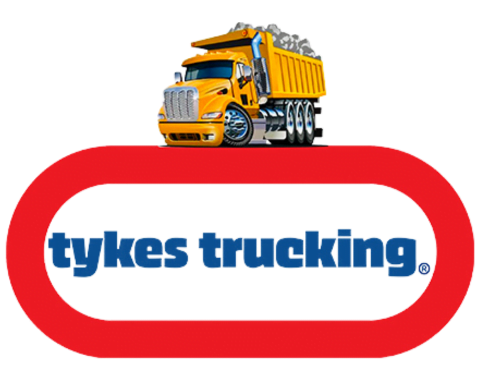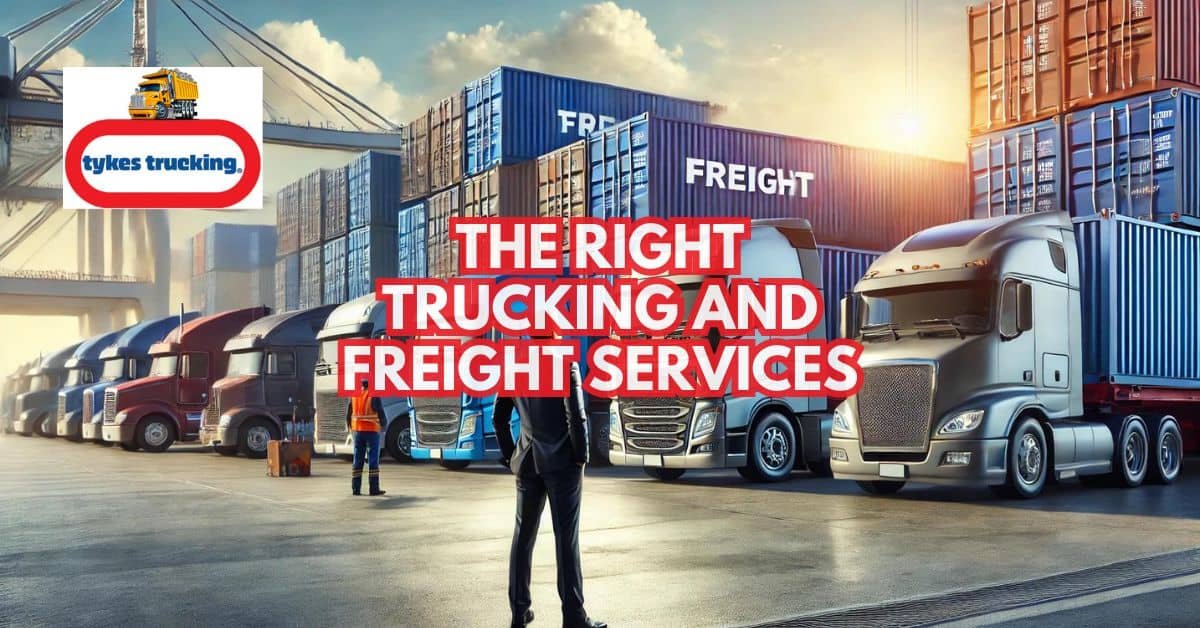Choosing the right trucking and freight services is critical for businesses that depend on the timely and secure transportation of goods.
A wrong choice can lead to delays, damaged products, or unexpected costs, which can hurt your bottom line.
It’s essential to understand the specific needs of your business, such as delivery schedules, the type of goods being shipped, and the frequency of shipments.
By carefully considering these factors, you can find a trucking and freight provider that aligns with your operational requirements.
Making the right choice upfront saves you from costly disruptions down the line.
1. How to Match Your Cargo Needs with the Best Trucking Service
Matching your cargo with the right trucking service begins with evaluating the nature of the goods you’re shipping and determining the best method of transport.
For large and oversized items, a flatbed trailer may be necessary to accommodate the size and weight of the load.
If you’re dealing with temperature-sensitive cargo like food or pharmaceuticals, a refrigerated trailer will be essential to maintain the appropriate conditions throughout transport.
Consider whether your shipment will require specialized equipment, such as liftgates or intermodal containers, especially if the goods will move across different modes of transport.
You should also assess the level of protection needed for your items, particularly if they are fragile or prone to damage during handling.
Choosing the appropriate service and trailer type ensures that your freight is handled safely and reaches its destination without unnecessary delays.
Matching the trucking service to your cargo needs helps improve both efficiency and overall satisfaction.
🚚 How to Pick the Right Dump Truck Hauling Services in the Philippines
2. Choosing the Right Carrier for Reliable Freight Shipping
When choosing a carrier for freight trucking, reliability is critical for ensuring that your goods are delivered safely and on time.
Start by reviewing the carrier’s history of on-time deliveries, especially for logistics solutions that match your specific cargo needs.
A reliable carrier should have experience handling your type of shipment, whether it’s perishable goods, hazardous materials, or high-value products requiring secure transport.
Additionally, check for positive customer feedback, as it reflects the carrier’s reputation for providing dependable service, both in transit and at the warehouse.
Real-time tracking options are another key factor, allowing you to monitor your freight trucking journey from pickup to delivery.
Reliable carriers help prevent costly delays, reduce the risk of damaged goods, and ensure smooth supply chain operation.
By choosing a carrier with a strong track record, you protect your business from unnecessary complications and losses.
🚚 Why Tow Trucking Services Are a Must-Have on the Road
3. Understanding Freight Quotes: What You Need to Know
Freight quotes can vary widely based on the distance of the shipment, the type of goods, and the service level chosen.
It’s essential to break down the components of the quote, such as base shipping rates, fuel surcharges, and any additional handling fees.
Always clarify what’s included to avoid surprise charges later.
Comparing quotes from multiple providers can help you find the best value for your needs without sacrificing service quality.
Understanding your freight quote in detail helps you plan your budget and ensure you’re getting a fair deal.
🚚 Choosing the Best Dump Truck Design for Your Hauling Needs
4. Evaluating Trucking Companies for Full Truckload (FTL) and Less-Than-Truckload (LTL) Services
Choosing between full truckload (FTL) and less-than-truckload (LTL) services depends on the size and urgency of your shipment.
FTL is typically used for larger shipments that require an entire truck, ensuring faster transit since there are no additional stops along the route.
LTL, on the other hand, consolidates smaller shipments from different clients, which can reduce costs but may take longer due to multiple stops.
When evaluating trucking companies, consider their expertise in handling both FTL and LTL shipments, as well as their capacity to meet your specific needs.
Understanding the pros and cons of each option helps you select the service that balances speed and cost efficiency for your business.
🚚 Discover Trucking Services in Cainta: Keep Your Logistics Moving Smoothly!
5. How Freight Brokerage Services Can Streamline Your Supply Chain
Freight brokers act as intermediaries between shippers and carriers, offering access to a broad network of trucking companies.
This allows you to find the most cost-effective and reliable shipping options without having to deal with each carrier individually.
Brokers can also negotiate better rates and provide value-added services such as load optimization and real-time tracking.
Their expertise simplifies the logistics process, making it easier to manage your supply chain, especially if you have complex shipping needs.
By using a broker, you can save time and resources while ensuring that your shipments are handled by reputable carriers.
🚚 How to Keep Your Dump Truck Bucket in Top Shape
6. The Role of Technology in Tracking Your Trucking and Freight Services
Technology has become a critical tool for monitoring the progress of freight shipments.
GPS tracking systems provide real-time updates on the location of your cargo, allowing you to anticipate delivery times more accurately.
Additionally, automated alerts can notify you of any delays or issues, giving you the opportunity to adjust your plans as needed.
Some trucking companies offer platforms where you can manage your shipments, review documentation, and track performance metrics.
Incorporating these technologies into your logistics operations helps improve visibility and control over your freight services.
🚚 Can Truck Drivers Have Passengers? Here’s What You Need to Know
7. Choosing Between Expedited Shipping and Standard Freight Services
Expedited shipping offers faster delivery times, often within a day or two, while standard freight services are more economical but slower.
The decision between the two depends on the urgency of your shipment and the flexibility of your budget.
Expedited services are ideal for time-sensitive goods, such as perishable items or critical components, but come at a higher cost.
Standard services, on the other hand, are better suited for non-urgent shipments where cost savings are a priority.
Weighing the importance of speed versus cost will guide you in selecting the service that best meets your needs.
🚚 Essential Tips for Keeping Your Dump Truck Battery in Great Condition
8. How to Assess the Flexibility and Scalability of Your Logistics Provider
Assessing the flexibility and scalability of a logistics provider is crucial for ensuring they can grow with your business.
A good provider should be able to accommodate fluctuating shipment volumes, especially during peak seasons or periods of increased demand.
Look for providers that offer adaptable services, such as varying truck sizes, customizable schedules, and the ability to manage urgent or complex deliveries.
Scalability also means that the provider can maintain service quality even as your business expands.
Evaluating these factors ensures your logistics partner can continue to meet your needs in the long term.
🚚 Why Refrigerated Trucking Services Are So Important
9. Comparing Flatbed Trucking Services and Refrigerated Trucking Services for Your Business Needs
Flatbed and refrigerated trucking services cater to very different types of cargo, so understanding your specific requirements is key.
Flatbed trucks are best for oversized or oddly-shaped goods that need to be loaded easily from the sides or top, such as construction materials or heavy machinery.
Refrigerated trucks, however, are essential for transporting temperature-sensitive products, like food, pharmaceuticals, or chemicals, that require climate control.
When comparing the two services, consider the type of cargo, safety requirements, and handling precautions.
Choosing the right trucking service ensures your products are delivered in good condition and without complications.
🚚 Flatbed Truck Ladder Safety: Tips for Pros and DIYers
10. The Importance of Insurance and Licensing for Safe and Reliable Freight Services
Insurance and proper licensing are fundamental to ensuring the safe and legal transportation of your goods.
Always verify that your chosen carrier has up-to-date licenses and complies with industry regulations, as this protects your business from legal issues.
Additionally, comprehensive insurance coverage is critical in case of accidents, damage, or loss during transit.
Without insurance, you risk significant financial losses if something goes wrong.
Ensuring your carrier has the necessary insurance and licensing provides peace of mind and reduces your exposure to risks.
🚚 Are Dump Trucks Automatic? What That Means for You
💡 Conclusion
Choosing the right trucking and freight services involves evaluating multiple factors, from cargo needs and carrier reliability to technology, flexibility, and safety precautions.
It’s important to align your choices with your business goals, ensuring that the provider can meet both current and future demands.
Taking the time to assess different providers and understand their capabilities can help prevent costly disruptions and maintain smooth operations.
The right partnership not only ensures timely deliveries but also enhances your overall supply chain efficiency.
Ultimately, selecting the best freight service sets your business up for long-term success.
😉 Our Services
Tykes Trucking Services specializes in delivering aggregates and providing reliable hauling services tailored to your needs.
Whether you need materials for construction or help with heavy-duty hauling, we’ve got you covered.
Our team ensures timely and efficient service with a focus on safety and customer satisfaction.
Contact us at 09175435019, reach out via our Facebook page, or use our site’s contact form for inquiries.
Trust Tykes Trucking Services to handle your next project with care and professionalism.

